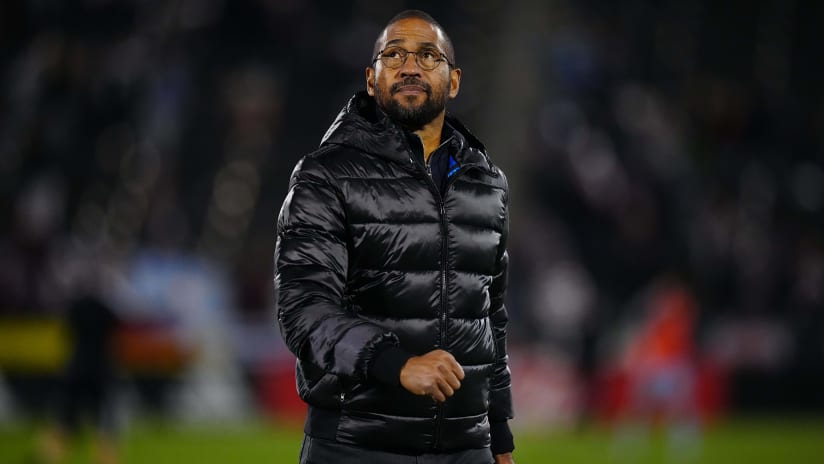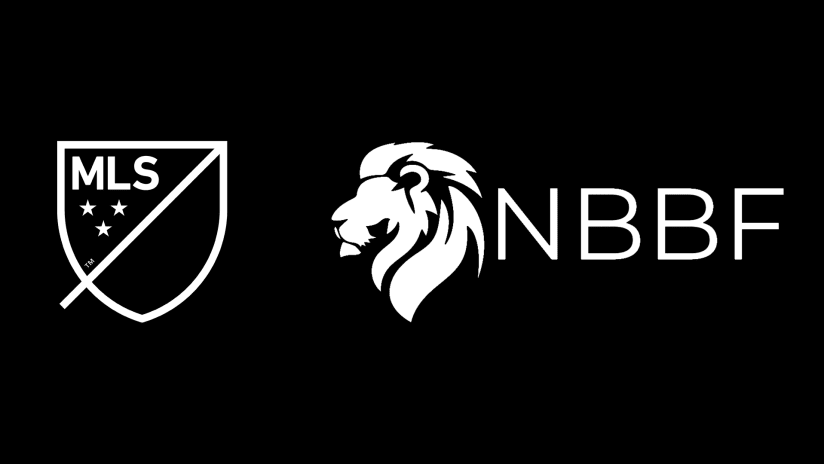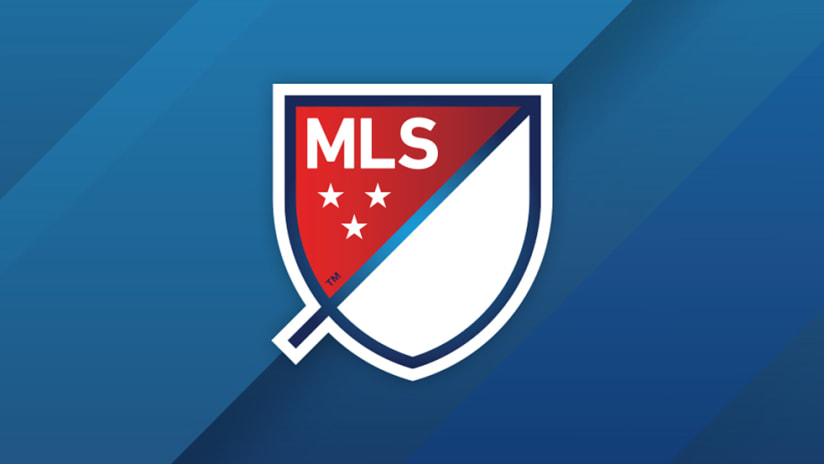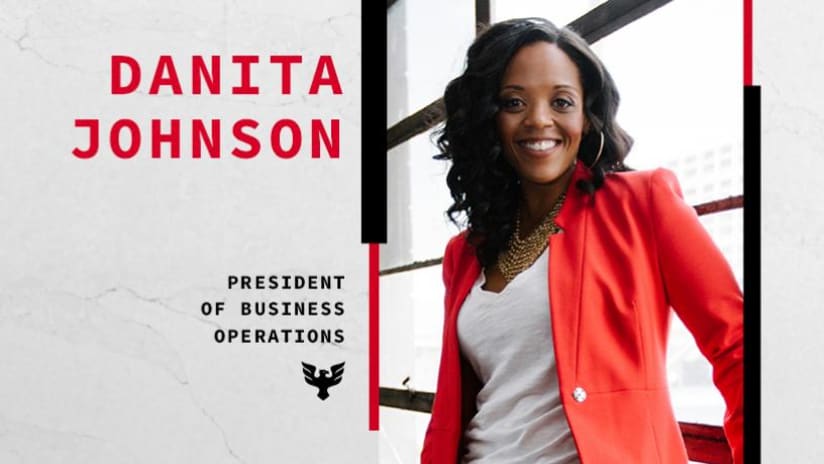It’s almost 15 years since Major League Soccer first implemented a Diversity Hiring Policy that was designed to create opportunities in the game for individuals from underrepresented groups.
But MLS had 13 clubs back then, society has changed and the sport has grown considerably across North America. Evolution was necessary and essential, said MLS Chief Diversity, Equity and Inclusion Officer and Executive Vice President Sola Winley.
“Organizations are not static,” Winley told MLSsoccer.com. “They are dynamic organisms and we have to be present and accountable for the moment in which we're leaders.”
The end product is an updated Diversity Hiring Policy that MLS announced Tuesday, applying increased focus on hiring Black candidates for sporting positions and strengthening the policy’s enforcement mechanisms.
Policy details
Previously, the Diversity Hiring Policy only required one diverse candidate to be interviewed for an open position. Now, the finalist pool for an open sporting position must include two or more non-white candidates, one of whom must be Black or African American. Clubs must also show an equal interview process and comparable interview experience for all candidates in the finalist pool, an aspect Colorado Rapids head coach Robin Fraser believes is especially important.
“I feel like where the policy is today, it forces people to really take a look and a listen to the candidates who come in,” said Fraser, one of three Black head coaches in MLS alongside Wilfried Nancy (CF Montréal) and Ezra Hendrickson (Chicago Fire FC). “No one wants a handout, no one wants anything more so than anyone else. We just want an opportunity is all it is. The change in this policy allows for more serious opportunities for Black candidates.”
If clubs fail to abide by the updated Diversity Hiring Policy, they can be fined up to $50,000 for first offenses, up to $100,000 for second offenses and more than $100,000 (pursuant to the Commissioner’s discretion) for third offenses and beyond. Clubs must also submit all details of vacant sporting positions and information about all candidates in the final candidate pool to a new Diversity Policy Portal (DPP).
Perhaps most important of all, at least in the eyes of SCORE (Soccer Collective on Racial Equality) executive co-founder Allen Hopkins, Jr., these changes apply to all technical/sporting roles across the MLS ecosystem, ranging from the first team to the newly-established MLS NEXT Pro lower league and MLS NEXT academies. That means everyone from general managers and sporting directors down through academy assistant coaches.
Long-term, Hopkins said, that creates more opportunities for Black candidates to get opportunities or even work their way up the ladder.
“Do I think this solves the problem, add water and stir? No, but what it does is refresh this conversation,” Hopkins said. “It's 2022 and there are 28 MLS teams for all intents and purposes. The [chief soccer officers] and the [general managers], many are new and haven't been at this part of the table having these conversations. Chris Albright, Pat Onstad, there are people who are now being exposed to this for the first time in a position in which they can really effect change. There's some accountability, too, and also it's something the clubs should embrace because the better hiring process you have, the better outcomes you have.”
This amended Diversity Hiring Policy is the byproduct of bi-weekly sessions with a variety of stakeholders across the league, where over 150 hours were collectively put into discussions over several months. Then the MLS Diversity, Equity and Inclusion Committee, along with the MLS Board of Governors and member clubs, officially approved the updates on Dec. 2.
The working groups include representatives from MLS clubs, league office leadership, SCORE and Black Players for Change (BPC), an independent organization of more than 170 MLS players, coaches and staff. BPC was named the 2020 MLS Works Humanitarian of the Year and counts New England Revolution goalkeeper Earl Edwards Jr. as a board member.
How Edwards sees it, the revisions are the byproduct of vital conversations that began in earnest this summer. And the formal implementation ties nicely into the offseason, when the winter usually produces more turnover in coaching and leadership positions across clubs.
“I've been really fortunate to have two Black goalkeeper coaches, probably two of the only Black goalkeeper coaches to come through the league,” Edwards said. “The feeling I got working with them is unique because when you're working with people that look like you, that have similar experiences, similar backgrounds it's empowering for players as well. For us to get a little bit of that representation, to see ourselves in those positions of power, it does a lot for an athlete and it encourages youth players to want to partake in the sport and maybe one day be a coach."
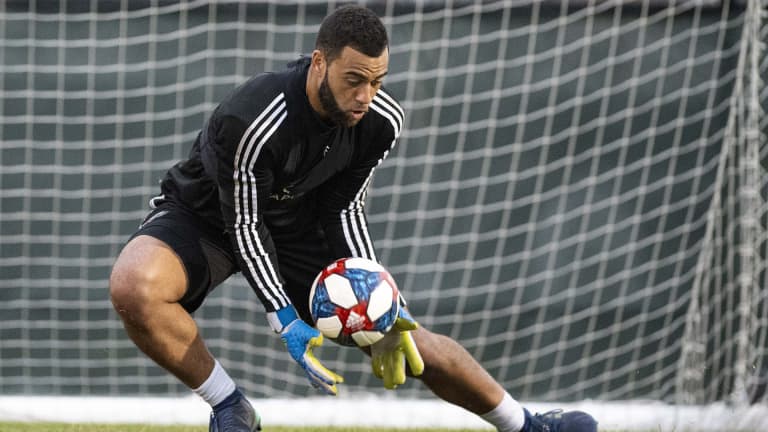
What the future holds
This past November, the Institute for Diversity and Ethics in Sport (TIDES) awarded MLS an A grade for racial hiring practices. But there was also an overall B grade when factoring in the C grade for gender hiring practices. In that vein, the Diversity Hiring Policy will be reviewed annually and updated as needed – placing a spotlight on how to improve accessibility and opportunities for underrepresented groups.
Winley also said the league is working on creating programs to support pipeline development and aspirations across sporting positions and other roles. Another phase is on the horizon as more diverse leaders emerge.
“This holds the league and the clubs accountable for developing diverse talent from the very first touchpoint with Major League Soccer,” Winley said. “It's from academy directors, academy coaches, assistant coaches on up. I'm not aware of another league that has a policy that's as holistic as our policy in terms of addressing diversity from the start all the way to the highest levels of the organization.”
As for Black or underrepresented head coaching candidates who could be next to get an opportunity in MLS? Fraser rattled off his own Rapids assistant Wolde Harris, Portland Timbers assistant Carlos Llamosa and FC Cincinnati’s Tyrone Marshall as clear options. Hendrickson was leading that group, before he left his Columbus assistant gig last month to steer Chicago forward into 2022.
But holistic, measurable change might take time, Fraser noted. It’s not as though a switch is flipped on and tangible results surface overnight.
“You will see an immediate effect in the league, but I think the real effect will be in the years to come,” Fraser said. “All these opportunities are now being created for people, even at the academy level, the assistant coach level. Once they get those jobs, it'll only help prepare them for head coaching jobs.
“So you'll benefit for years to come at varying levels. You'll see some immediately at the head coaching position, but over time you'll see more Blacks involved which leads to more Blacks getting opportunities down the road.”
Winley also said the policy may be amended in the future to include additional sporting roles. The likes of sports scientists and sports performance coaches are additional areas to consider.
But with this step forward, Hopkins said, there’s a clear marker that MLS is moving in a positive direction. And over time, a more equitable and inclusive league emerges.
“This work is never the fun, sexy work,” Hopkins said. “But now it's to the light of day, if you will, and now it's really on the clubs, on the decision-makers, on the hiring managers to carry on. I think they'll do that.”
Added Edwards: “Hopefully we can take whatever data we get after the first year and say, 'OK we have a lot of strides to make.' Then from there, it's do we want to add more teeth to the policy to get this to a point where it's reflective of the player pool in a year or three years, five years, 10 years? Everyone is on a different part of the gauge, but for me the sooner the better.”

